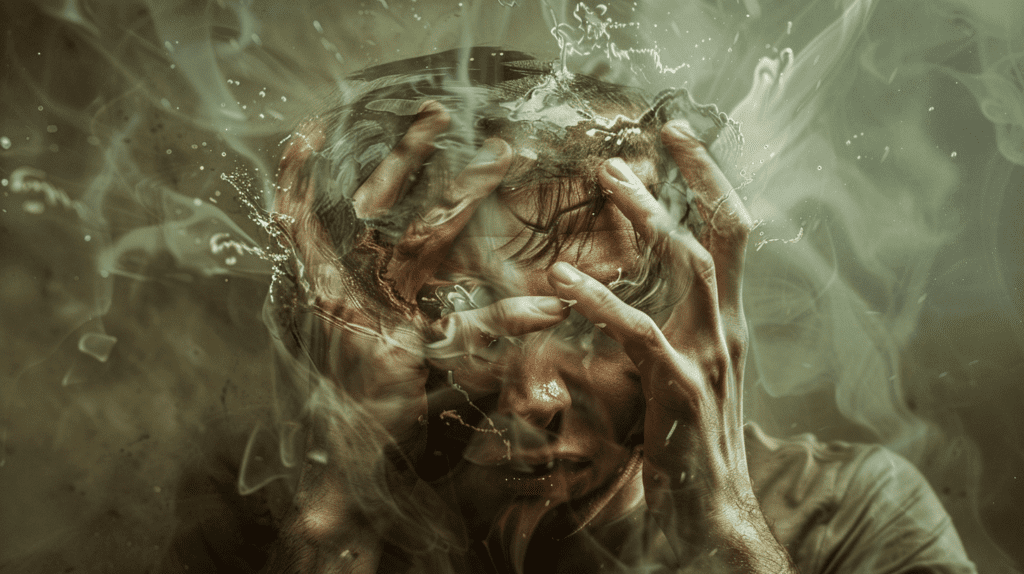Depression is a complex mental health condition that affects millions of people worldwide. It can manifest in various ways, and its symptoms can vary from person to person. However, there are some common signs and symptoms that can indicate the presence of depression. One of the most prominent signs is persistent sadness and hopelessness.
Feeling sad or down from time to time is a normal part of life. However, when these feelings become persistent and start to interfere with daily functioning, it may be a sign of depression. People with depression often experience a deep and overwhelming sadness that seems to have no specific cause. This sadness can persist for weeks, months, or even longer.
In addition to persistent sadness, individuals with depression may also feel a sense of hopelessness. They may believe that things will never get better and that there is no point in trying to improve their situation. This feeling of hopelessness can be debilitating and can make it difficult for individuals to find motivation or joy in their lives.
It is important to note that everyone experiences sadness and hopelessness at times, but in the case of depression, these feelings are persistent and pervasive. They can affect all aspects of a person’s life, including their relationships, work, and overall well-being.
The exact cause of depression is not fully understood, but it is believed to be a combination of genetic, biological, environmental, and psychological factors. Certain life events, such as the loss of a loved one, a major life change, or a traumatic experience, can trigger or contribute to the development of depression. However, it is important to remember that depression can also occur without any obvious trigger.
Recognizing the signs of persistent sadness and hopelessness is crucial for early intervention and treatment. If you or someone you know is experiencing these symptoms, it is important to seek help from a healthcare professional. They can provide a proper diagnosis and recommend appropriate treatment options.
Treatment for depression may include therapy, medication, or a combination of both. Therapy, such as cognitive-behavioral therapy (CBT), can help individuals identify and change negative thought patterns and behaviors that contribute to their depression. Medications, such as antidepressants, can help regulate brain chemicals and alleviate symptoms of depression.
In addition to professional help, there are also self-care strategies that can help manage persistent sadness and hopelessness. Engaging in regular exercise, practicing relaxation techniques, maintaining a healthy diet, and getting enough sleep can all contribute to improved mental well-being. It is also important to reach out to friends and family for support and to engage in activities that bring joy and fulfillment.
In conclusion, persistent sadness and hopelessness are common signs of depression. When these feelings become overwhelming and interfere with daily life, it is important to seek help from a healthcare professional. Early intervention and treatment can make a significant difference in managing and overcoming depression. Remember, you are not alone, and there is help available.
Loss of Interest or Pleasure in Activities

Depression is a complex mental health condition that affects millions of people worldwide. It can manifest in various ways, and recognizing the early signs is crucial for seeking timely help and support. One of the most common indicators of depression is a loss of interest or pleasure in activities that were once enjoyable.
When someone is experiencing depression, they may find themselves losing interest in activities they used to love. Hobbies, socializing, and even spending time with loved ones may no longer bring them joy or satisfaction. This loss of interest can be gradual or sudden, and it often leaves individuals feeling empty and disconnected from the world around them.
One of the first signs of this loss of interest is a lack of motivation. Tasks that were once completed with enthusiasm and energy may now feel like burdens. Simple activities like going for a walk, reading a book, or even watching a movie may seem like insurmountable challenges. This lack of motivation can be frustrating and confusing for both the individual experiencing it and those around them.
Another common symptom of a loss of interest in depression is social withdrawal. People who are depressed may isolate themselves from friends, family, and social events. They may cancel plans or make excuses to avoid socializing altogether. This withdrawal can be a result of feeling disconnected from others or a fear of burdening them with their own struggles. Unfortunately, this isolation often exacerbates the feelings of loneliness and sadness associated with depression.
In addition to a loss of interest in activities, individuals with depression may also experience a decrease in their overall energy levels. They may feel constantly fatigued, both physically and mentally. Simple tasks that were once effortless may now require a significant amount of effort and concentration. This lack of energy can further contribute to the loss of interest in activities, as individuals may feel too exhausted to engage in anything beyond the bare minimum.
It is important to note that a loss of interest or pleasure in activities is not exclusive to depression. Other mental health conditions, such as anxiety or bipolar disorder, can also present with similar symptoms. Additionally, certain medical conditions or medications may cause a decrease in interest or pleasure. Therefore, it is crucial to consult with a healthcare professional for an accurate diagnosis.
If you or someone you know is experiencing a loss of interest or pleasure in activities, it is essential to seek help. Depression is a treatable condition, and early intervention can significantly improve outcomes. Mental health professionals can provide guidance, support, and appropriate treatment options tailored to individual needs.
In conclusion, a loss of interest or pleasure in activities is one of the first signs of depression. It can manifest as a lack of motivation, social withdrawal, and decreased energy levels. Recognizing these symptoms and seeking help is crucial for managing depression effectively. Remember, you are not alone, and there is support available to help you navigate through this challenging time.
Changes in Sleep Patterns and Appetite
Depression is a mental health disorder that affects millions of people worldwide. It is characterized by persistent feelings of sadness, hopelessness, and a loss of interest in activities. While the symptoms of depression can vary from person to person, there are some common signs that may indicate the presence of this condition. One of the first signs of depression is changes in sleep patterns and appetite.
Sleep disturbances are a hallmark symptom of depression. Some individuals may experience difficulty falling asleep or staying asleep, while others may find themselves sleeping excessively. Insomnia, characterized by difficulty falling asleep or staying asleep, is a common symptom of depression. People with depression may also wake up earlier than usual and find it difficult to go back to sleep. On the other hand, hypersomnia, or excessive sleepiness, can also be a sign of depression. Individuals with depression may find themselves sleeping for longer periods of time and still feeling tired upon waking.
Changes in appetite are another common sign of depression. Some individuals may experience a decrease in appetite, leading to weight loss. They may have little to no interest in food and may find it difficult to eat even small amounts. On the other hand, some individuals may experience an increase in appetite, leading to weight gain. They may find themselves constantly craving and consuming large quantities of food, especially comfort foods that are high in sugar and fat. These changes in appetite can have a significant impact on a person’s overall health and well-being.
The relationship between sleep and appetite in depression is complex. Sleep disturbances can disrupt the body’s natural hunger and fullness cues, leading to changes in appetite. Lack of sleep can also affect the hormones that regulate hunger and satiety, such as ghrelin and leptin. This can result in an increase in appetite and cravings for high-calorie foods. Additionally, changes in appetite can also be influenced by emotional factors. People with depression may use food as a way to cope with their emotions, leading to emotional eating and weight gain.
It is important to note that changes in sleep patterns and appetite can also be caused by other factors, such as stress or medical conditions. However, when these changes are accompanied by other symptoms of depression, such as persistent sadness, loss of interest, and feelings of worthlessness, it is important to seek professional help. A healthcare provider or mental health professional can conduct a thorough evaluation to determine if depression is the underlying cause.
In conclusion, changes in sleep patterns and appetite are often among the first signs of depression. Sleep disturbances, such as insomnia or hypersomnia, can disrupt a person’s ability to get adequate rest. Changes in appetite, including a decrease or increase in appetite, can also be indicative of depression. These changes can have a significant impact on a person’s overall well-being and should not be ignored. If you or someone you know is experiencing these symptoms, it is important to seek professional help for an accurate diagnosis and appropriate treatment.
We highly recommend reading “Retrain Your Brain: Cognitive Behavioral Therapy in 7 Weeks: A Workbook for Managing Depression and Anxiety”.
You can buy it here.










